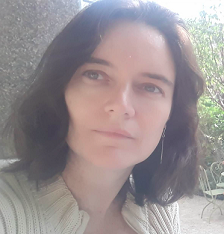Permanent Professor
Professor and researcher at the Department of Social Communication and at the Postgraduate Program in Media and Everyday Life (PPGMC) of Fluminense Federal University (UFF). PhD in Communication and Culture from Federal University of Rio de Janeiro (UFRJ) and visitor at Princeton University (USA). She coordinates the research group Tempos (Media Temporalities, Languages and Everyday Life), of the PPGMC-UFF, and the extension project Reconfigurações Jornalísticas. Member of the Research groups Imprensa e Circulação de Ideias (The role of periodicals in the 19th and 20th centuries), at Casa de Rui Barbosa, and Memento (Media, Memory and Temporalities), at UFRJ. She participates in the Network of Research Groups of Historicity in Communication Processes. Rachel has earned a Master’s degree in Communication and Culture from UFRJ (2003) and a Bachelor’s in Social Communications with an emphasis on Journalism also from UFRJ (1993). She is interested in media history, media theory, journalistic practices and editorial circuits. In addition to her academic career, she was responsible for writing the book Memória de Repórter (Memories, cases and other stories of Brazilian journalists), from the Center for Culture and Memory of Brazilian Journalism; publisher of Itaú Cultural’s Principles Inconstantes (publication on cultural journalism and new media); coordinator of Machado de Assis Magazine, of the National Library, to disseminate Brazilian literature abroad. She worked for 15 years at the newspaper O Globo and worked in vehicles such as Valor Econômico and the French Le Monde.
Research Project
Tempos (Media Temporalities, Language and Everyday Life)
Description: This project concentrates different areas of interest and research, in which we develop a series of investigations based on the media technical conditions, their languages and historicities. The materiality of the communication processes is taken into account, having as perspective, mainly (but not exclusively), the strand of media theory. As an axis, the temporalities of the media are investigated, taking as a starting point the fact that everyday life is a specific temporality itself, socially constructed. The project has four lines of research: 1) Communication and media materialities; 2) Temporalities of everydaily life; 3) Journalistic practices; 4) Editorial circuits. The first investigates media artifacts and their insertion in sociotechnical and discourse networks (with an archaeological and genealogical approach), taking into account their languages and the way they give rise to forms of temporalities (and power). In the second, the focus are social memories (such as those of reporters, ephemeris, testimonies, archives, etc.) and temporalities related, for example, to the ideas of catastrophe, revolution, utopias (and dystopias), among others. In the case of journalistic practices, emphasis is placed on digital media production, with their different languages (text, sound, image, visualization, file, coding), taking into account their social and technical dilemmas. Attention is also given to historical issues (such as press history). Finally, the research on editorial circuits also refers to journalism, book publishing and other editorial objects (printed or digital), criticism and reading practices, taking into account the socialization around these topics.
Lattes: http://lattes.cnpq.br/6048950036951543
e-mail: rachelbertol@id.uff.br








